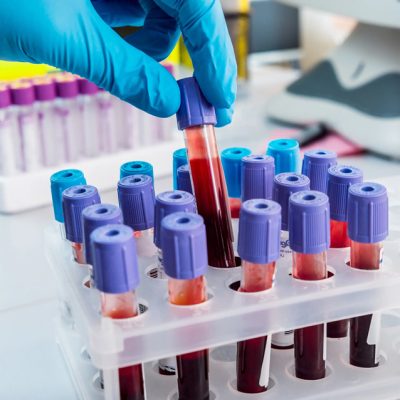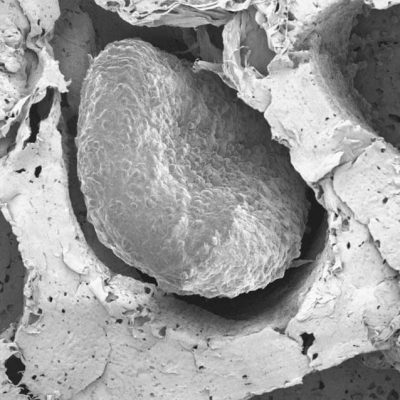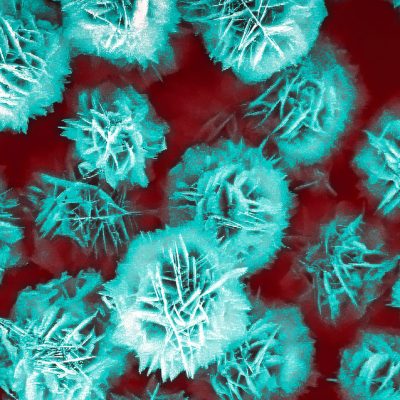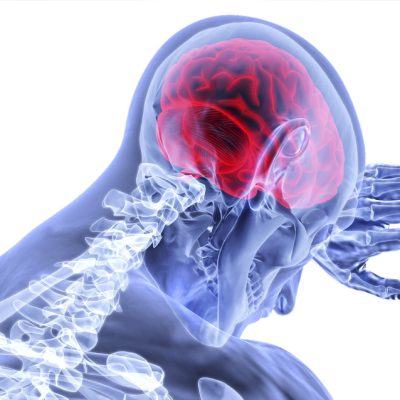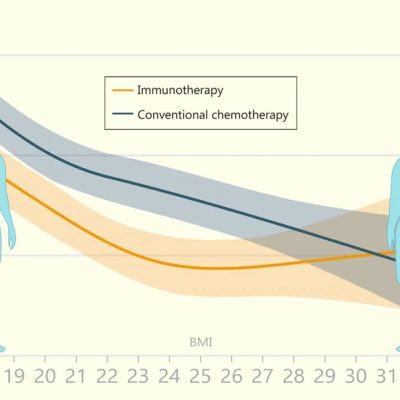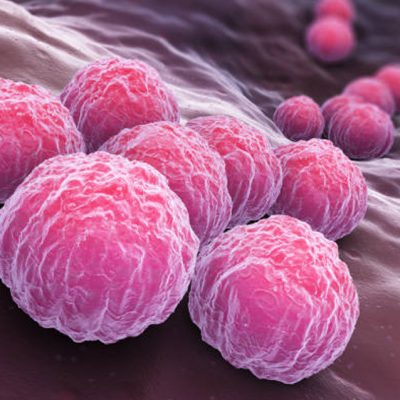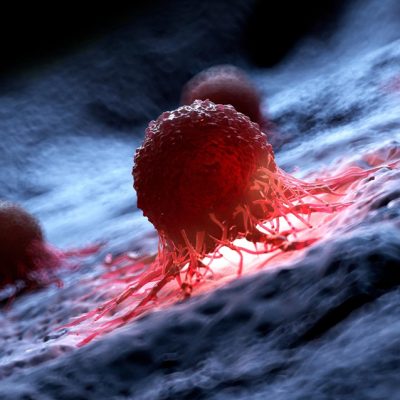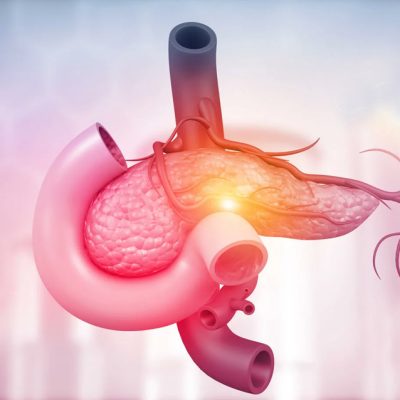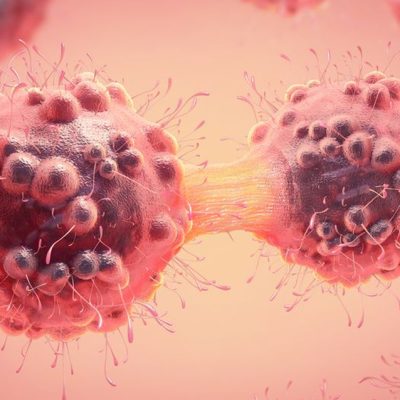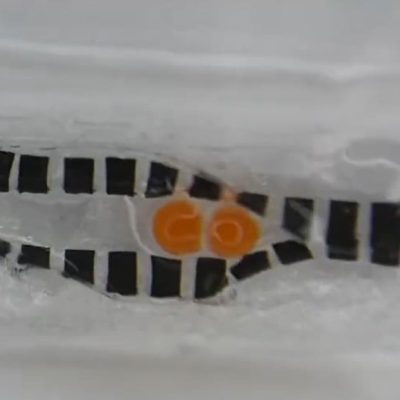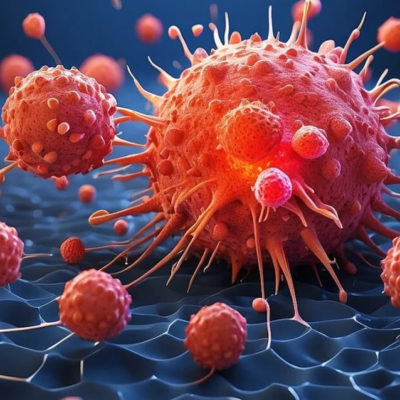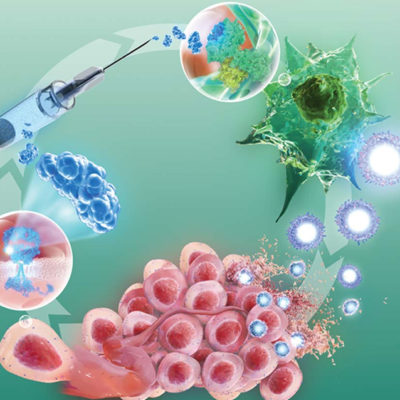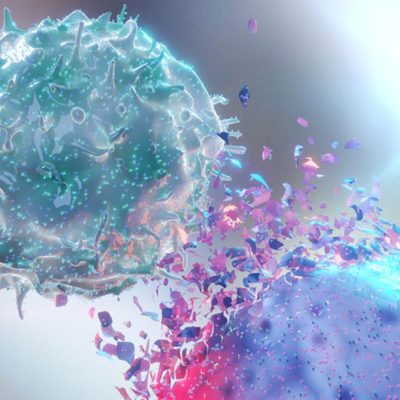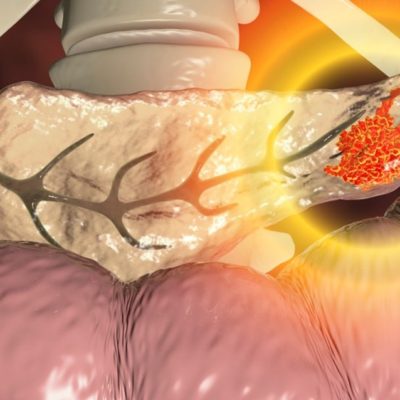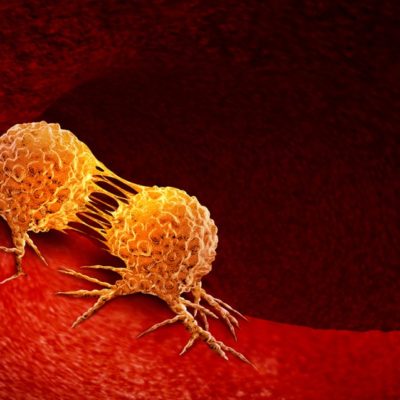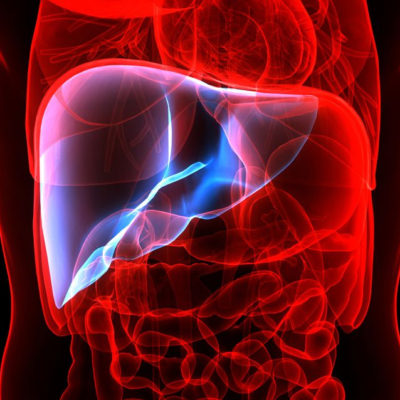A new, error-corrected method for detecting cancer from blood samples is much more sensitive and accurate than prior methods and may be useful for monitoring disease status in patients following treatment, according to a study by Weill Cornell Medicine and New York Genome Center investigators. The method, based on whole-genome sequencing of DNA, also represents an important … [Read more...]
Cancer

Citrus Remedy Squeezes Out Dry Mouth For Cancer Patients
A natural citrus oil from oranges, lemons, and limes is proving highly effective in relieving dry mouth, and when combined with a new lipid formulation, new research suggests it may be effective without significant side effects. Developed by the University of South Australia in collaboration with the Medical School at Stanford University, this world first formulation … [Read more...]
How Hungry Fat Cells could Someday Starve Cancer to Death
Scientists transformed energy-storing white fat cells into calorie-burning 'beige' fat. Once implanted, they outcompeted tumors for resources, beating back five different types of cancer in lab experiments. Liposuction and plastic surgery aren't often mentioned in the same breath as cancer. But they are the inspiration for a new approach to treating cancer that uses … [Read more...]
AI Can Improve Ovarian Cancer Diagnoses
A new international study led by researchers at Karolinska Institutet in Sweden shows that AI-based models can outperform human experts at identifying ovarian cancer in ultrasound images. The study is published in Nature Medicine. "Ovarian tumours are common and are often detected by chance," says Professor Elisabeth Epstein at the Department of Clinical Science and … [Read more...]
Delivering Medicines with Microscopic Flowers
How can medicines be directed to the precise location within the body where they need to act? Scientists have been researching this question for a long time. An example would be delivering cancer drugs directly to a tumour so that they only take effect at this specific location, without causing side effects in the rest of the body. Research is under way to identify carrier … [Read more...]
Cancer Risk Declines in old age, Research Helps Explain why
When it comes to cancer, aging is a double-edged sword, researchers are increasingly learning. Age is considered the most important risk factor for cancer. That's because genetic mutations build up in cells over years and decades, and ultimately drive the development of cancer. Now a study from researchers at Memorial Sloan Kettering Cancer Center (MSK) and their … [Read more...]
Cancer ‘Fingerprint’ can Improve Early Detection
Different types of cancer have unique molecular 'fingerprints' which are detectable in early stages of the disease and can be picked up with near-perfect accuracy by small, portable scanners in just a few hours, according to a study published today in the journal Molecular Cell. The discovery by researchers at the Centre for Genomic Regulation (CRG) in Barcelona sets the … [Read more...]
Most Accurate Ultrasound Test could Detect 96% of Women with Ovarian Cancer
An ultrasound test that detected 96% of ovarian cancers in postmenopausal women should replace current standard of care test in the UK according to a new study. In a paper published in Lancet Oncology today (Monday 30 September), research funded by the National Institute for Health and Care Research (NIHR) and led by Professor Sudha Sundar from the University of Birmingham … [Read more...]
New Therapeutic Approach to Preventing Cancer From Spreading to the Brain
Researchers at McMaster University have identified a new therapeutic approach to preventing cancer from spreading to the brain. In a new study, published recently in the journal Cell Reports Medicine, researchers Sheila Singh and Jakob Magolan discovered a critical vulnerability in metastatic brain cancer, which they say can be exploited with new drugs to prevent … [Read more...]
BMI’s Relation to Cancer Therapy Mortality Risks Not so Straightforward
While being overweight increases the risk of developing lifestyle-related diseases, there is a phenomenon known as the obesity paradox where a decreased risk of death has been seen during cancer therapy. However, that paradox might not be the trend for all cancer therapies, an Osaka Metropolitan University team reports in JAMA Network Open, a publication of the American Medical … [Read more...]
Chlamydia Can Settle in The Intestine
Chlamydiae are sexually transmitted pathogens that can apparently survive in the human gut for a long time. Researchers from Würzburg and Berlin report this in the journal PLOS Pathogens. People who are infected with chlamydia can transmit these bacteria to other people during unprotected sex. The pathogens usually cause no or only mild symptoms at first, such as itching in … [Read more...]
The Secret to Sleepy Cells’ Control of Inflammatory Secretions
Scientists at Sanford Burnham Prebys and the La Jolla Institute for Immunology have revealed a new secret regarding senescence, a cellular state similar to sleep that is more likely to affect aged cells. This drowsy condition is known to provide health benefits under certain conditions while also potentially causing collateral damage. "Senescence is not all bad," said Peter … [Read more...]
A Ketogenic Diet Could Improve The Response to Pancreatic Cancer Therapy
A study of fasting and the ketogenic diet reveals a new vulnerability of pancreatic tumors to an existing cancer drug. Scientists at UC San Francisco have discovered a way to get rid of pancreatic cancer in mice by putting them on a high fat, or ketogenic, diet and giving them cancer therapy. The cancer therapy blocks fat metabolism, which is the cancer's only source of … [Read more...]
New Vaccine Against Cervical Cancer Combines Prophylactic and Therapeutic Activity
A new vaccine against cancer-causing human papillomaviruses (HPV) is intended to help increase the rate of HPV vaccinations, particularly in developing countries. Scientists at the German Cancer Research Center (DKFZ) have developed a completely new vaccination concept for this purpose. The vaccine is inexpensive and protects mice against almost all cancer-causing HPV types. In … [Read more...]
Scientists Exploring Potential New Treatments for Glioblastoma
A new approach to treating the most malignant type of brain cancer -- glioblastoma -- has shown strong promise in pre-clinical settings, raising hopes of increasing current average survival rates beyond 18 months. Targeted alpha therapy (TAT) is emerging as a potential additional treatment for glioblastoma (GB), a disease which has confounded oncologists for decades due to … [Read more...]
Robotic Device Restores Wavelike Muscular Function Involved in Processes Like Digestion
A team of Vanderbilt researchers has developed a wirelessly activated device that mimics the wavelike muscular function in the esophagus and small intestine responsible for transporting food and viscous fluids for digestion. The soft-robotic prototype, which is driven by strong magnets controlled by a wearable external actuator, can aid patients suffering from blockages … [Read more...]
Pan-Cancer Analysis Uncovers a New Class of Promising CAR T-Cell Immunotherapy Targets
Targeting anti-cancer therapy to affect cancer cells but not healthy cells is challenging. For chimeric antigen receptor (CAR) T-cell immunotherapy, where a patient's own immune cells are re-engineered to attack cancer cells, many solid and brain cancers lack an effective target. St. Jude Children's Research Hospital scientists have identified 156 potential targets through a … [Read more...]
Beating By Overheating: New Strategy to Combat Cancer
To treat cancer, you have to inhibit cancer cells. Right? Researchers at the Netherlands Cancer Institute did just the opposite. They achieved surprising results by overstimulating cancer cells in the lab and then hitting them at their weak spot: stress. "This goes against the prevailing view." Many new drugs inhibit the processes that cancer cells need to divide rapidly. So … [Read more...]
Non-Invasive Techniques to Detect Skin Cancer
A study conducted by Aston University researchers has demonstrated that the appearance of ageing skin looks noticeably different compared to younger skin, when examined under polarised laser light. The scientists believe that their new finding could pave the way for new, non-invasive light-based techniques to detect diseases, including cancer, in older individuals. This … [Read more...]
Why Cancer Immunotherapies don’t Work for Everyone
Why cancer immunotherapies don't work for everyone (cancer) The study, published in the peer-reviewed journal Cell Reports, sheds light on why immunotherapy treatments don't work for all people or all diseases. For example, certain types of cancers -- including colon, pancreatic, prostate and brain cancers -- have stubbornly resisted immunotherapy. And while breast, … [Read more...]
Artificial Intelligence and Immunity
Researchers from Cleveland Clinic and IBM have published a strategy for identifying new targets for immunotherapy through artificial intelligence (AI). This is the first peer-reviewed publication from the two organizations' Discovery Accelerator partnership, designed to advance research in healthcare and life sciences. The team worked together to develop supervised and … [Read more...]
Trial Show Treatment Designed to Clear Senescent Cells in Alzheimer’s Disease is Safe
Alzheimer's disease is the most common cause of dementia that affects more than 6.5 million Americans, according to the Alzheimer's Association. To find effective treatments and slow the progression of this debilitating disease, researchers have made much progress in developing new drugs that target beta-amyloid plaques, one of the hallmarks of Alzheimer's … [Read more...]
Plants Remove Cancer Causing Toxins From Air
A ground-breaking study has revealed that plants can efficiently remove toxic gasoline fumes, including cancer causing compounds such as benzene, from indoor air. The study was led by University of Technology Sydney (UTS) bioremediation researcher Associate Professor Fraser Torpy, in partnership with leading Australian plantscaping solutions company Ambius. The … [Read more...]
Discovery of Metabolic Switch Could Lead to Targeted Treatment of Obesity, Cancer
An Iowa State University research team has discovered a method for modifying the function of an enzyme crucial to fat production, which could lead to more effective treatments for childhood obesity and cancer. While the research was in fruit fly larvae, being able to speed up or slow down lipid metabolism could have significant implications for human health, said Hua Bai, … [Read more...]
Dietary Change Starves Cancer Cells, Overcoming Treatment Resistance
Cancer cells need nutrients to survive and grow. One of the most important nutrient sensing molecules in a cell is called mTORC1. Often called a master regulator of cell growth, it allows cells to sense different nutrients and thereby grow and proliferate. When nutrients are limited, cells dial down nutrient sensing cascade and turn off mTORC1. While mTORC1 is known to be … [Read more...]
Biological Pathways Provide Evidence For How to Overcome Barriers Limiting Cancer Immunotherapies
Researchers at UNC Lineberger Comprehensive Cancer Center have found a possible way to overcome barriers that block effective anti-cancer immune responses, thereby opening the potential for more effective immunotherapies in people. The findings are published in Nature. An unfavorable immune environment immediately surrounding a tumor cell is a major obstacle in using … [Read more...]
Researchers Find Tumor Microbiome Interactions may Identify New Approaches for Pancreatic Cancer Treatment
Investigators from Rutgers Cancer Institute of New Jersey, the state's leading cancer center and only National Cancer Institute-Designated Comprehensive Cancer Center, together with RWJBarnabas Health, examined the microbiome of pancreatic tumors and identified particular microorganisms at single cell resolution that are associated with inflammation and with poor survival. … [Read more...]
Scientists are One Step Closer to Stopping Drug-Resistant Tumors From Growing
Scientists have solved a long-standing mystery surrounding a cancer-promoting protein and how it causes tumor growth. The findings are an important step in the quest to make cancer drugs more effective since aggressive tumors often become adept at resisting drugs and other therapeutic agents. The recent discovery by a team of scientists including Benjamin Myers, PhD, an … [Read more...]
Leisure Time Activities may Lower Risk of Death for Older Adults
Older adults who participate weekly in many different types of leisure time activities, such as walking for exercise, jogging, swimming laps, or playing tennis, may have a lower risk of death from any cause, as well as death from cardiovascular disease and cancer, according to a new study led by researchers at the National Cancer Institute, part of the National Institutes of … [Read more...]
Scientists Discover Key to Hepatitis A virus Replication, Show Drug Effectiveness
The viral replication cycle is crucial for a virus to spread inside the body and cause disease. Focusing on that cycle in the hepatitis A virus (HAV), UNC School of Medicine scientists discovered that replication requires specific interactions between the human protein ZCCHC14 and a group of enzymes called TENT4 poly(A) polymerases. They also found that the oral compound RG7834 … [Read more...]
- 1
- 2
- 3
- …
- 37
- Next Page »
